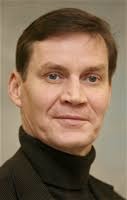Your cart is currently empty!
Jung’s Critical Holism

This is an excerpt from one of the presentations featured in the Pari Center’s event Re-enchanting the World, in Pari from August 27 to September 3, 2019.
with Roderick Main
Roderick’s presentation will begin with an explanation of what is meant by disenchantment, both as Max Weber originally wrote about it and as the concept arguably still applies today. This will be followed by discussion of Carl Jung’s psychology as a form of holism that was developed and continues to serve as a response to the cultural conditions signified by disenchantment. Jung’s thought development towards wholeness of being — the goal of his psychology — entails experience of the numinous and the retrieval of an enchanted view of the world. Jung’s is, however, a critical holism, not just in the sense that it criticises the ontological and epistemological assumptions underpinning disenchanted modernity, but also in the sense that it is self-critically aware of, and aims to be immunised against, the very real ethical dangers of holism itself, such as slippage into despotic thinking. The integration of critical thinking and holistic perception in Jung’s model reflects the synthesis of consciousness and the unconscious that was the central task of psychology as he saw it.

Roderick Main, PhD, works at the University of Essex, UK, where he is Professor in the Department of Psychosocial and Psychoanalytic Studies and Director of the Centre for Myth Studies. He is the author of The Rupture of Time: Synchronicity and Jung’s Critique of Modern Western Culture and Revelations of Chance: Synchronicity as Spiritual Experience, the editor of Jung on Synchronicity and the Paranormal, and co-editor of Myth, Literature, and the Unconscious. He was Principal Investigator in the Arts and Humanities Research Council-funded project ‘“One world”: logical and ethical implications of holism’ (2016-18).
